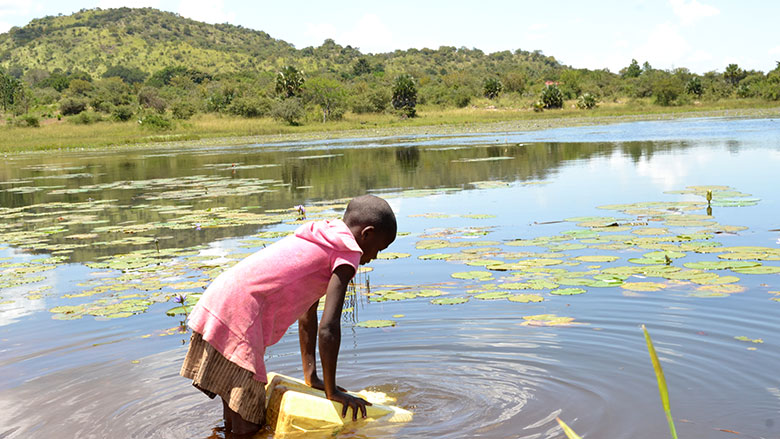Let’s Sensitize Public About Values Of Nature

By Gerald Barekye
Every day, media reports revealing environmental destruction across the country have kept many people in shock. Many wonder if Ugandans understand the value of environmental protection.
People have continued to carry out farming in wetlands, forests, lake shores, and wildlife conservation areas in broad daylight.
For example, River Rwizi in western Uganda is drying up due to human activities. It has lost a considerable percentage of its water catchment due to crop-growing on the river banks.
Growing crops and trees on River Rwizi has resulted in silting of the river especially when it rains.
The swamps surrounding the river are being cleared due to human pressure to create land for crop growing and animal rearing.
For example, the Nyakafumura swamp has been cleared to create land for farming and the Kanyabukanja wetland in Karungu Sub County has not survived.
Not once or twice, has the president of Uganda ordered a total ban on rice growing in wetlands across the country.
Farming in swamps has seen a sharp decline in wetland coverage from 15.5% in 1994 to 8.9% % due to encroachment.
The state minister for environment MS Beatrice Anywar has been on the frontline arresting and chasing people away people who are encroaching on the environment.
Unfortunately, the implementation of the minister’s directives hasn’t been successful. We continue to see farming activities in wetlands and forests across the country.
All these destructions have caused negative effects on both humans and wildlife.
For example, the continuous destruction of the Bugoma forest has forced wild animals to attack communities where gardens and crops have been destroyed. In Hoima District, human life has been threatened by members of the wildlife.
As a result of increased encroachment on the Bugoma forest reserve, the number of chimpanzees has significantly reduced according to the Wildlife Conservation Society (WCS).
A WCS census conducted in 2001 indicated that Bugoma forest was home to an estimated 570 chimpanzees but they have now reduced to 390 which is a big loss to the tourism sector. Chimpanzees are killed in process of clearing their habitat for cultivation.
Therefore, I call upon all stakeholders especially NEMA and NFA to carry out mass sensitization campaigns to educate the public about the value of environmental conservation and that all human activities in eco-sensitive areas should be stopped to protect nature.
Mr. Gerald Barekye is a researcher – geraldbarekye@gmail.com







